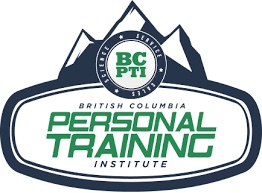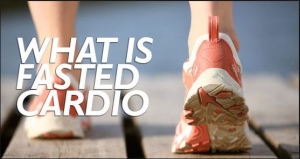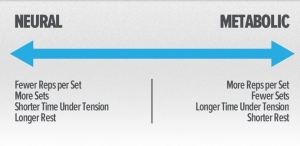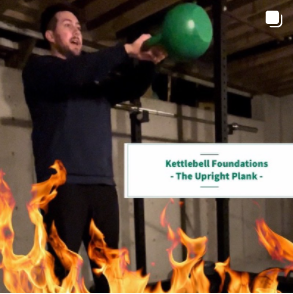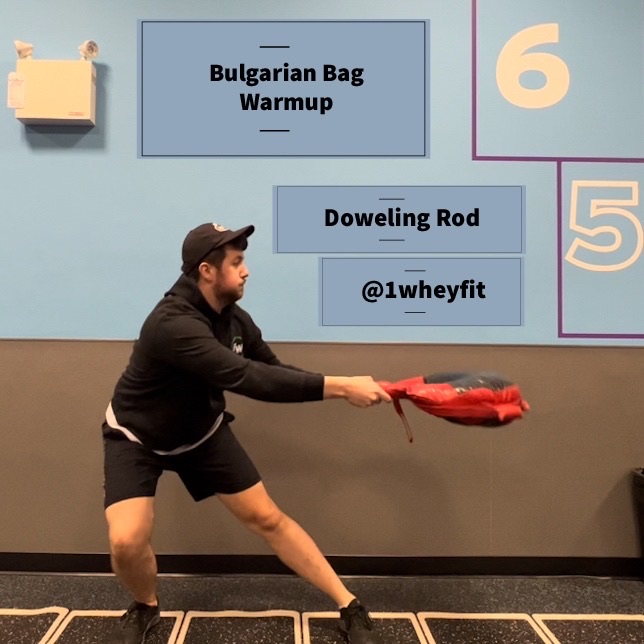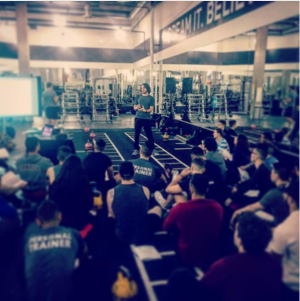One of the challenges that we have in the fitness and nutrition field is the myriad of conflicting information. Today, we wanted to spend some time breaking down some common advice that is perpetuated through social media, people in the field, the media as a whole or just from those around us. Instead of just telling you what to do, I like to empower my clients as well as fellow trainers through understanding the information. If you understand the mechanism of change while utilizing critical thinking skills, you will be better able to make your own informed decision. The purpose isn’t to highlight what is right and wrong but rather how to navigate what is out there (and there is a ton!). Most of these statements have some degree of usefulness and truth to it but as it gets disseminated from person to person, the true meaning can be lost. It’s similar to playing the telephone game that many of us played in our youth where you sit in a circle and one person starts a statement by whispering it to the person beside them and that continues all the way around the circle; by the end, the original statement is sometimes unrecognizable. It highlights how easy it is to take general blanket statements and pass it along without much thought.
**Note: We are not saying the things in this blog post are wrong and we are right but rather we are using these as examples of how to work through understanding. We are open to feedback and correction, so as the reader, if you have something to add or improve please let us know! We are always open to learning and developing our own understanding as well.
Statement 1: Fasted Cardio is an excellent way of burning fat
- Fasted Cardio is when you perform low intensity cardio (predominantly stair climber style cardio machines) during a fasted state. Most often we see individuals performing this first thing the morning accompanied by sipping on branched chain amino acids.
- Possible rationale? Simplistically, the hierarchy of energy usage in our body is carbohydrates, protein and then fat for breakdown to use. In a fasted state, our glycogen stores are depleted and the branched chain amino acids allow for free floating amino acids for the body to uptake. Since the body has little to no carbohydrates to break down for energy, it will attempt to use protein. The most abundant source in our body is our muscle so the branched chain amino acids are used to prevent catabolism of the muscle tissue. This leaves fat to metabolize for energy which gives us the most energy per gram however, it is also the slowest.
- Possible mechanism of change? Increased caloric expenditure? Fasted cardio works for weight loss because it increase how many calories you’re burning but only if you’re on a caloric deficit (calories in vs. calories out). It may not necessarily be the fasted cardio itself because your body stores the most glycogen in the muscles, followed by the liver and then has some in the blood stream. When you perform fasted cardio, the body is depleting its glycogen stores so burning body fat may not be occurring in the way that most users believe.
- This area has not been researched as heavily or widely so it may change in the future. We leave you with some words from Dr. Brad Schoenfeld, PhD, CSCS, CSPS, FNSCA:
- [Fasted Cardio is] definitely not well studied at this time; thing is, there is no evidence supporting its benefit and the evidence we do have, albeit it limited, shows no benefit. Take home is you should choose to exercise fasted or fed based on preference, not in the belief that it will enhance fat burning
Statement 2: Eating after 7 makes you gain weight
Possible Rationale: As the day continues on, our bodies begin to down regulate to prepare for sleep and the vast majority of people decrease their physical activity. So if we don’t eat after 7 we won’t convert what we’re eating into fat since we’re not using it.
Mechanism of change? Consider what time the average person eats dinner, it is somewhere between 5-7pm and then consider what time most people go to sleep, which ranges from 10-1am. As we take a closer look, when we’re at home, we tend to be doing more relaxed activities and are more likely to snack or continue eating. The down regulation of the body does have an effect but it isn’t necessarily going to cause weight gain in isolation but rather it’s the calories in vs. calories out concept again. If you have your main meals for the day and essentially the calories you would need and then continue snacking and eating later at night, you may be over eating!
Your body knows the “time” of the day based on its circadian rhythm not necessarily that it is 7pm (or whatever arbitrary time).
Statement 3: Low weight + high reps = toned muscles
As the summer season comes along, we often hear people suggesting this piece of advice assuming that doing just this will lead to toned muscles.
Mechanism of change? The lighter loads with higher volume is an attempt to increase caloric expenditure however, without progressive overload, it does not automatically lead to anything. What tends to happen is people drop their intensity so they begin to lose not just body fat but also muscle mass. Consider the person who “bulks” during the winter months and then attempts to “cut/shred” for the summer and they become noticeably smaller and lose much of their muscle mass. It is possible to do both if done systematically and alongside managing nutrition and exercise intensity.
The greater muscle mass you persevere, the higher your caloric expenditure is and the more you maintain your exercise intensity, the more you preserve your muscle mass. If you aren’t progressively overload your muscles then you may lose some of it.
This was just a quick blog post on breaking down some common advice and so if you liked this post, comment below and let us know what other pieces of advice or statements that you would like us to work through with you! Please check out our other blog posts on how to get more out of your exercise program and if you want to continue to develop your critical thinking skills, our next intake of our Personal Training Certification is beginning soon. We teach you to become industry relevant trainers through our comprehensive in class experience.
Blog by:
Brian Truong, BCPTI Instructor
